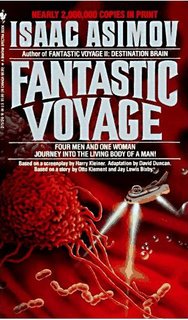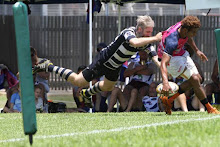 A bit of an offshoot from my last couple of posts,
A bit of an offshoot from my last couple of posts, It is what I call the First Form Imperative.
That is that the value of any text declines as it changes form.
My examples would be;
Hitchhikers Guide to the Galaxy was at its best as a radio serial, the books were still fantastic but the TV series and the film did nothing to add to the franchise. Of course the passage of time might interfere with this as the Film has better technology than the TV series.
Likewise Lord of the Rings was a better book than Film while Star Wars is better as a film than any of the books (or graphic novels).
Any comic book is completely crap when it gets to the big screen (Judge Dread, Hellboy and everything Marvel or DC) but the Batman TV series was better than the films.
The same is true with the new trend to turn games into movies or books.
The one place where this rule might not work would be Fantastic Voyage, where Isaac Asimov wrote the book of the film and decided he didn't like the Hollywood ending so he changed it. Although, despite the film being made first, the book was released first (and I never saw the TV series, but I'm going to guess it was appalling) so perhaps the imperative still applies?
Anyone else think they have an exception to John's First Form Imperative?

2 comments:
I can't think of many exceptions but I can add to your list of proofs:
1. Battlestar galactica.
2. The Time Machine (This one goes up and down. Wells' book is a masterpiece. The 1960 film surpasses it, but the 2002 film was a crock.
3. The Passion of the Christ (if you take the Gospel of John as the primary text)
4. Contact (Both Carl Sagan's book and the movie were OK but the book has an edge)
The only one I can think of that (perhaps) buck the trend is Lés Miserables (OK, I didn't read the book, but the musical is fantastic)
BTW, what was the difference between Asimov's ending for Fantastic Voyage and the film?
It's been a while since I read or saw it so I stole this from wikipaedia
http://en.wikipedia.org/wiki/Fantastic_Voyage
In the original movie the crew (apart from the saboteur) manage to leave Benes' body safely before reverting to normal size, but the Proteus remains inside, as do the atoms of the saboteur's body (digested together by a white blood cell). Isaac Asimov pointed out that this was a serious logical flaw in the plot, since the submarine (even if reduced to bits of debris) should also revert to normal size, killing Benes in the process. Therefore, in his novelization Asimov had the crew provoke the white cell into following them, so that it drags the submarine to the tearduct. The submarine (or rather, the wreckage of it) then expands outside Benes' body.
As well, the scene where the crew collects air from Benes' lungs after their own supply is sabotaged should not work, as they are normal-sized air molecules. Asimov's novelization solved this problem as well by including a miniaturization device in the jury-rigged suction machine. However, in the movie, the unminiaturized air was used only to pressurize a tank for ballast, not for breathing. Neither book nor movie, however, explains how the miniaturized air failed to injure Benes nearly an hour later.
Post a Comment